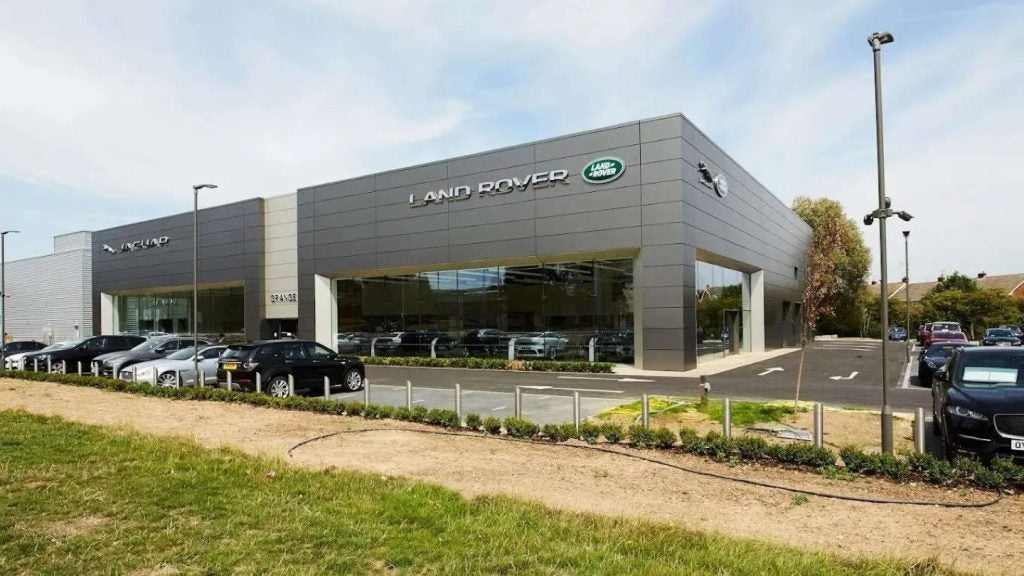
Mike Cobb explores the recruitment market as the market sees some of its best time ever and finds an industry hirig the same old faces and failing to recruit for the future of the industry
Motor Finance has been experiencing an almost unprecedented level of growth in 2013 and ’14. In the 12 months to the end of July the value of finance extended in the UK market grew 21% according to data from the Finance & Leasing Association.
This level of growth has been accompanied by an increase in the number of contracts drawn up year-on-year and the penetration rates the captives in particular are now able to achieve on retail sales.
Some of this success is due to the low interest rate environment and increasing consumer confidence but as most will admit the emergence of the PCP product has been the greatest gift to the industry.
The growth in the financial side of the motor finance industry is being matched however by an increasingly ageing workforce. And as that workforce ages, the real worry for the industry in the coming years is not interest rate rises or pervasive regulation, it’s the fact that skills will be lost as the old guard retire.
As Graeme Chisholm, director and founder of CBC recruitment, a specialist recruitment company in the sector says, "There is a good talent pool in motor. I think what there isn’t in motor finance is a growing talent pool. It’s reducing, because some of the people I’ve worked with over the past 26 years are heading towards retirement. What we haven’t seen is the organisation, or scale of recruiting there once was in the 80s and early 90s."

US Tariffs are shifting - will you react or anticipate?
Don’t let policy changes catch you off guard. Stay proactive with real-time data and expert analysis.
By GlobalDataThe problem is one that has crept up on the industry. Consolidation of businesses along with a centralisation of the motor finance function for many banks has played its part.
Chisholm says: "Well I think in those early days I could name probably 15 maybe 16 big retail motor finance companies, and they all had branch networks, so you therefore had a branch manager and an office manager, and you had credit and collection managers and sales teams. Now when the banks decided to first of all exit from the branch networks, they first sort of went regional and then they went sort of home based."
Post 2007 opportunities became thin for those looking to move as Rachael Overland, director of Human Resources at RCI Financial Services, the Renault-Nissan captive, explains, "a lot of the finance companies that we were competing with just closed, or consolidated offices and that sort of thing. Other jobs dried up and we had practically no turnover of staff."
Now with a rise in confidence across the industry the job market is once again open, but where once the motor finance industry was keen to train its staff up from scratch, the industry has changed its profile. There are fewer fresh faces, and more familiar faces.
Unique skills?
One of the problems according to Tom White, managing director of The Oakland Partnership is that over the cycle of growth and collapse of the market that typified the ’90s and early 2000s the management of a lot of motor finance related companies mistakenly believed that the skills used in the industry were almost unique.
"There are certain areas where the motor finance industry is still very intent on employing people who have motor finance experience and that is quite, in my view, narrow minded. because although it might make the first month or two of that employees time with you easier you are missing out on a wealth of talent from other aspects of financial services,
"So while it isn’t the case with every employer, a lot of them, if somebody has got experience of financing, say hard assets or something similar, they won’t consider that person for a role in motor finance," he continues, "But actually the experience is very transferable if you just allow somebody a month or two’s worth of learning curve. It just means you are fishing every time in a very small pond if you are only going to pull people from the motor finance industry. And as a calibre of individual we find there is often a much higher calibre of individuals looking from outside the industry than within it, so their reluctance to take people from that pool is unfortunate I think."
Chisholm is not so sure, however: "I think that for me if you look at the requirement to trade in that space there is a real knowledge required in terms of how you calculate the margin and the volume and the commission they have to pay. It’s not something you can just give to a trainee. It’s a relatively complex market especially when you need to also have an origination skill."
This is not to say that the outside candidate should be excluded he says, "No they don’t have to come from a motor finance background but they predominantly have come from that background. They could have come from a related backgrounds but i think they have to have an empathy with the trade into which they are selling, they have to be financially literate, because there is clearly a financial risk involved in the sale and I think if you haven’t got that blend of skill and experience it would be potentially difficult situation."
For Overland, the problem is one of perception. Many recruiters she feels are being allowed to think that the motor finance background is essential because the message they are being given is mixed or unclear. "It does depend on how you brief them [the recruiters] and if you are honest with your brief, because I think, when I’ve been on the other side of it the company says they are open to anybody, but they are not," she explains.
This can results in situations where, "Recruiters want to give you what they have always given you because they believe that eventually that’s what you are going to end up wanting because it’s the safer option. So it’s convincing them that you are genuine when you say that’s not necessarily what I want."
RCI is an example of a company that hopes to reduce its hiring from within the industry having taken a conscious decision in 2010 to move away from looking for a skill set and instead "recruit for their values," says Overland.
After all Overland points out, "You aren’t going to get people who know our systems because they are unique to us. So what we are going to do now is for every job, we are going to be recruiting based upon, ‘do they have these values?’ Because if they do have these values, then we can train them in anything and they are going to be engaged type of people."
A change of approach
This has led to RCI rarely hiring from inside the industry claims Overland, "With our operational type roles, the underwriters and all that sort of thing, our customer service reps, collection people etc. We look at what customer service roles they have done before. We are not interested in whether they have worked in motor finance or not. What we are interested in is, how are they going to deal with our customers? Are they going to give them the best support? Are they going to go out of their way to make sure that their call is handled first time?"
White agrees that this approach would bring huge benefits to the industry, with people from outside bringing: "A fresh approach, different attitudes and different ideas." But at present he worries that, "There’s no real enthusiasm in the industry to really bring in and nurture young talent, that’s what we see."
For Overland the hiring of new people from outside also adds value in other areas. "What we are trying to buy in at the moment are the skills we don’t have in house, such as how do we get in touch with our big customer base in an electronic way and in a way that they will want to click through and look at what we are doing?
"And then training those people to have the motor finance skills, but we would hope that we would be cross-training them so that those people coming in with those digital type skills would be training our not so technically savvy staff."
Chisholm can see why people are still reluctant to take this approach "No one will ever get fired for hiring experience. And I think it’s very hard for recruiters like us to say ‘go down the road of trainees, or go down the road of thinking outside of the box.’"
With brokers the reasons for hiring from in the industry are even more obvious "They don’t want to be paying a 30-35 grand basic and waiting three months for them to get up and running," explains White, "Sales is definitely an area where it’s square brick for a square hole."
The graduate
When it comes to hiring graduates and other younger team members the process seems to be much more unstructured, as Overland describes. "We haven’t actively sought graduates, though it’s amazing the number of graduates that apply to come. But not through a graduate programme, they’ve left university, they need a job. You employ them thinking that they will stay for a year until they get their dream."
Changing the way this young talent is brought into the industry is something White feels could be done better. "You shouldn’t be relying on something going wrong in someone’s life for them to end up in your industry.
"Nobody comes out of university wanting to come into leasing or asset finance, people fall into it. Actually asset finance and leasing is a massive part of the economy here, or a very significant part of the economy, and there’s nothing done to publicise that, or to say that this is a really good area for you to come into,
"I would like to see some initiative in educating people on the value of coming into asset finance and the kind of career that people can have there, but nothing takes place on that," he concludes.
And if there is any intention to take on graduates it is not being realised in graduate schemes. As Chisholm says: "We’re not seeing a huge push towards academy type schemes yet. I think it will come, but I think it will come next year and the year after. The push today is still for experience."
Overland thinks there is more that RCI and companies like hers can do in this area, but there has to be something companies can offer them.
"It’s making sure that you have something that will interest them. I think if you go and recruit purely a graduate, you have got to be able to show them a very strong career path, and that’s not so easy to do in what is a relatively small flat structure." But, she continues, "We are now trying to work with our manufacturers to see if we can become part of one graduate programme so that the graduates spend some of their time in the finance company and some in the manufacturers and some in the dealer network that we have, and therefore widen their career going forwards."
These plans though are still in their infancy, and with the recruiters still supplying the industry with veterans the future does still look bleak for motor finance.
It will take one finance house or broker to break this downward trend, and when they do, it will be they who rule the roost in the years to come.







